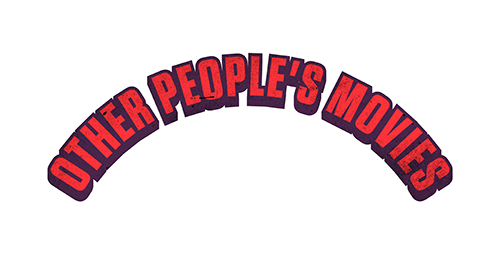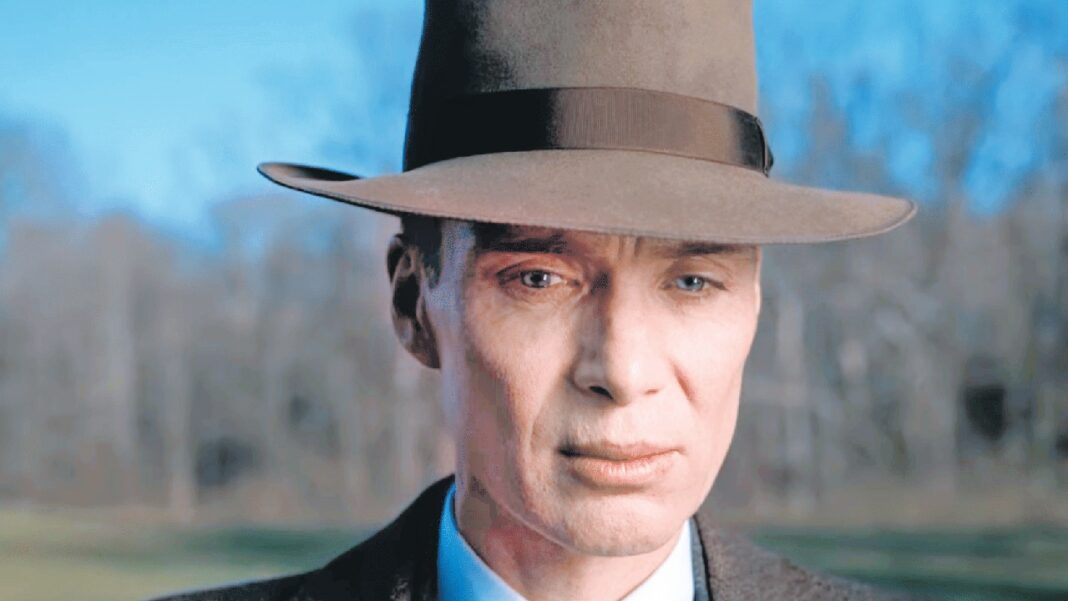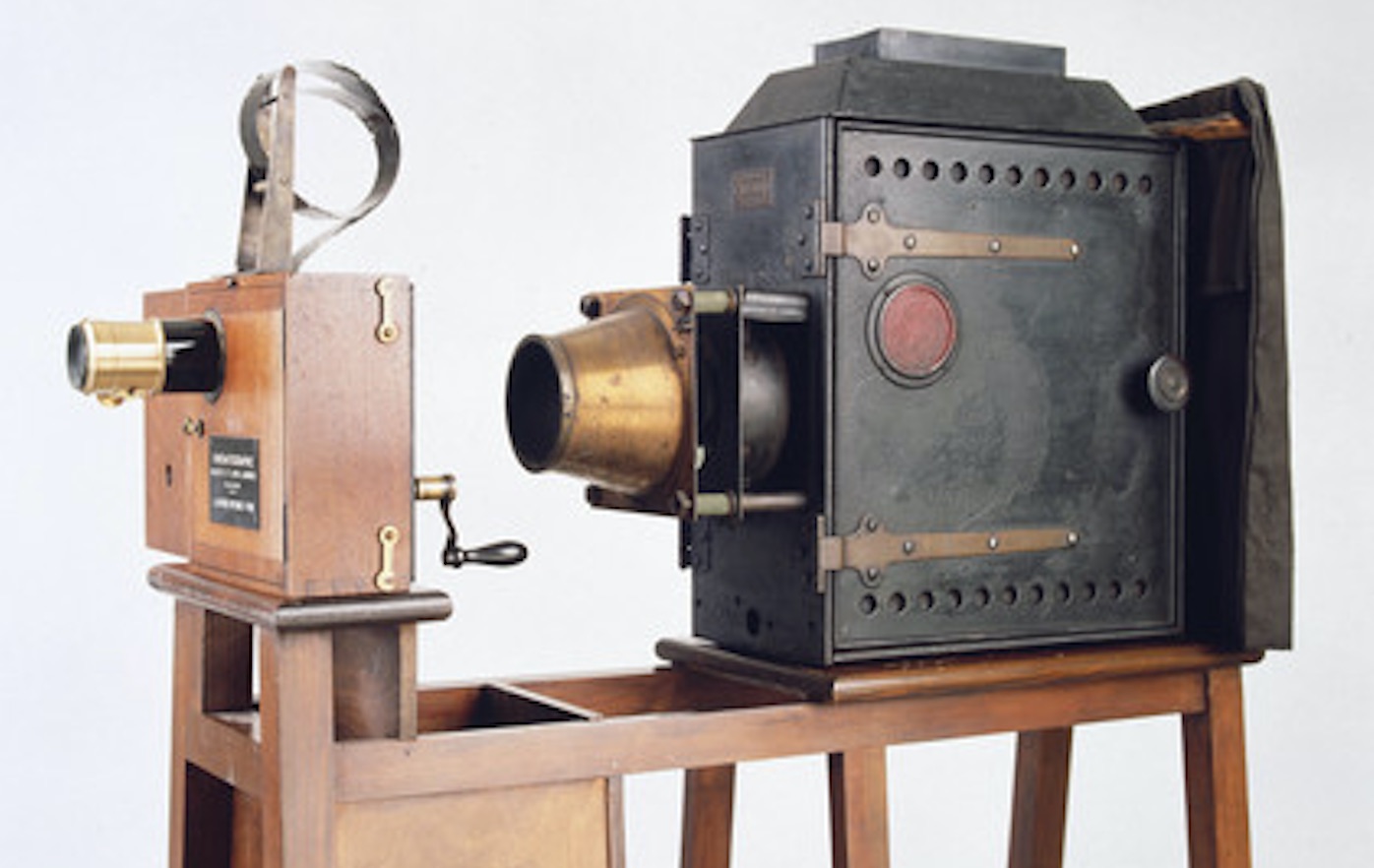
Part 9: All Roads Lead to Katie
With a blockbuster hit and his Gone paycheck under his belt, Allison Burnett could afford to return to works of a more personal nature, however risky the prospect of financial reward would be. Like his recently and quietly released novel, The Escape of Malcolm Poe, his next directorial effort and the next novel he would self-publish showcase Burnett at a creative peak, one where has full command over his voice and abilities.
While the execution of theses works proved to be nothing but a joy for him, finding an audience for them after their completion would prove to be another, again very frustrating, sometimes even devastating, story for Allison Burnett.
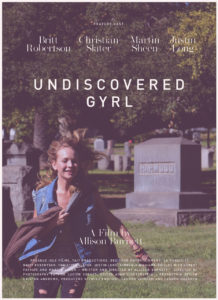
Discovering an Undiscovered Gyrl
As was the case with B.K. Troop, Burnett couldn’t quite shake the voice of Katie Kampenfelt from his consciousness. As evidenced by the many fan letters he’d received from teenage girls since Undiscovered Gyrl’s publication, he knew he was onto something that was highly relevant– especially to young women. Though Gyrl’s publication was a success, it had been a small one. Burnett was interested in turning it into a film, partially to raise awareness about his book, and partially because he felt it could be a great one.
In spite of some interest from an inexperienced independent filmmaker in New York, fledgling attempts to get the adaptation off the ground were not fruitful. Burnett soon came to realize that if Undiscovered Gyrl was going to be produced as a film, he was going to have to see it through himself.
Burnett had wanted to direct again for quite some time, but his only previous effort, 1997’s egregiously ignored Red Meat, had failed to garner anyone else’s interest in his directorial career. With the energy and fearlessness of a young filmmaker, the fifty-something Burnett decided to utilize the DIY methods he had previously practiced on the publication and promotion of his novels towards the production of his second feature film.

Due to the success he’d had with Lakeshore over the years, Burnett was in a financial position where he could take a significant risk. When an investor offered to invest $300,000 in the film, Burnett threw in $200,00 of his own money, which was enough to allow them to announce a start date. The project subsequently attracted interest from smaller investors who covered the budget’s remaining half.
With financing in place, Burnett was faced with the challenge of casting Katie Kampenfelt. Not only did Burnett have to find a young, charismatic actress who could seduce any man of any age, he also had to find one with the depth and intelligence to understand and convey the character’s and film’s many complex layers.
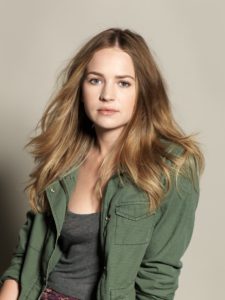
Burnett knew he found her when he auditioned Britt Robertson. Beautiful, intelligent beyond her years, effortlessly talented, and extraordinarily dedicated, Robertson was the ideal choice to play Katie. She was also passionate about the material, and was thrilled at the opportunity to stretch her dramatic talent beyond the teenage sitcom and “somebody’s daughter” roles that had previously been dominating her career.
The initial roadblock, however, was that her career was rising rather quickly in Hollywood and it was going to be difficult to schedule her for a low-paying role in an edgy independent film. When Robertson was finally offered the role, Burnett was forced to share her with the much larger studio film Delivery Man, in which she played a supporting role.
Though it added expenses and time to the production, Burnett felt it was more than worth it to accommodate someone of Robertson’s rising status and exceptional talent.
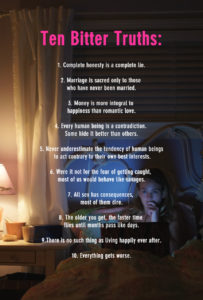
Undiscovered Shoot
When the shoot of Delivery Man was hit by Hurricane Sandy, the film’s schedule blew up and became largely improvised. This meant that the Los Angeles-based production for Undiscovered Gyrl was forced to shoot in 5-6 day bursts of time that began in the fall of 2012 and ended in the winter of 2013. There would be a total of 22 shooting days with several weeks of break time in-between production periods.
The schedule had its advantages, however, as it enabled Burnett to shoot segments of the script that were set around Halloween or Christmas during the actual times of the year, providing a plethora of free set decoration. Burnett says today, “You will never see either holiday shot this well in an indie movie, because both are very expensive. “
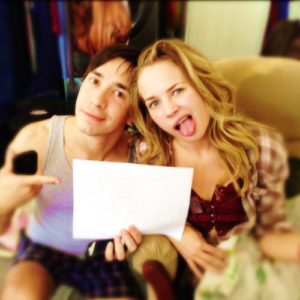
Robertson and Burnett had a great working relationship from the start. In preparation for the role, they talked at length about her character. Burnett found Robertson to be highly intuitive and empathic towards Katie:
“I loved working with Britt Robertson. I felt almost telepathically linked to her at times. She is keenly intelligent, relying not just on emotional instinct but also on intellectual understanding.”
The production of Allison Burnett’s Undiscovered Gyrl adaptation was one of the most creatively exciting experiences of his life. The script, and the heart of Katie Kampenfelt, had attracted top talent. Burnett had a relatively small but highly enthusiastic crew of about forty people, along with a supporting cast that featured Martin Sheen, Christian Slater, Justin Long, Robert Patrick, Molly Hagan, and Andy Buckley. Burnett says now of his stellar selection:
“Robert Patrick and I are the same age and had met once at a dinner party. I knew when I met him that he was perfect to play the dad. So it was wonderful when he agreed to the role. We had great talks on the set. And when it was time to shoot, he was a consummate professional. During rehearsal he would be a little bit loose with his lines, then the moment we were shooting, he was letter perfect. Martin and Christian were also true veterans. Stars who say yes to movies of this budget are smart enough to know that they will only get a few takes for each shot, so they come really prepared. The flip side to the phoniness and frivolousness that is often demanded of an actor in the social/public sphere is the deadly seriousness of their art. I wish more fans could see the courage and discipline great acting requires.”

Things were looking good for the possibility of the film becoming a major indie success. Burnett couldn’t have been happier with the finished film, and he wasn’t alone. Upon seeing the final cut, Robertson sent him a glowing email promising him she would do anything and everything she could to help promote it.
Initial word was that it was a strong contender for Sundance. Burnett held out from submitting the film to other festivals due to Sundance’s requirement that they screen world premieres. Burnett now feels this decision hurt the film, as it ultimately didn’t make the cut. The film was then subsequently rejected from other attempted festivals over the course of the next year, something that still baffles and frustrates Burnett to this day.
It was eventually accepted into Miami Film Festival, who offered to make the film a premiere event to kick off the festival. Phase 4, who had already acquired the film for US Distribution at that point, declined the offer, feeling it was too large of a risk. The film fared quite well at the 2014 Nashville Film Festival, which honored the film with awards for Best Music and Best Actress. Phase 4 had a marketing campaign in place for theatrical distribution, scheduled for September 1st of the same year.
Then Britt Robertson disappeared.
Robertson simply became unresponsive, with no explanation, to Burnett’s and the distributor’s requests for publicity. Although she was contractually obligated to promote the film, there was no money or inclination to sue her. Eventually, Martin Sheen and Christian Slater followed suit, not wanting to promote a film as a supporting player when the lead actress had gone AWOL.
Phase 4 pushed the theatrical release date back and scrapped plans to release the film in ten theaters. In the end, the only promotion that Robertson performed was a quick self-video for the iTunes release.
The film was eventually retitled to Ask Me Anything for the simple reason that it would be one of the first titles to show up in the “A” section during a pay-per-view hunt.
To top it off, Phase 4 ‘s trailer makes it look like a generic coming-of-age story and its poster would be better off not existing at all. It features Robertson scantily clad, wearing a men’s dress shirt, and staring at us with a vapid soft-core porn expression.
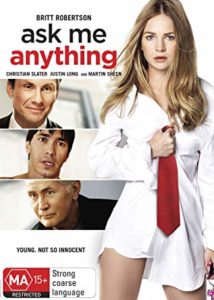
After years of work and patience, the intelligent and dark teenage drama that Burnett created out of empathy and observation was now being suggested and sold as a forgettable, hormonal teenage sex romp.
Burnett bluntly calls this time “the worst year of my adult life.”
He doesn’t expect to reclaim his sizable investment in Ask Me Anything, but expresses no regrets, as he is justifiably proud of the final result.
Though he no doubt wishes things had gone differently with Britt Robertson, Burnett admirably holds no ill will or resentment towards the talented young actress. Quite the contrary, he has nothing but fond memories of their working relationship and considers their collaboration to be the most creatively rewarding one of his entire career.

Ask Me Anything (2014)
“Katie: ‘What are you listening to?’ A voice inside my head telling me that something wonderful is going to happen any minute. It just has to.”
As Red Meat had accomplished almost twenty years prior, Ask Me Anything showcases Allison Burnett’s disciplined and observational approach to filmmaking: he doesn’t draw attention to himself, merely a fly on the wall stalking his characters right along with the audience.
One could argue that Ask Me Anything works even better as a film than Undiscovered Gyrl does as a novel– no small feat. The film takes on the heavy task of re-enacting Katie’s self-inflated blog posts. Burnett succeeds in the challenge, providing the film with an intoxicating mixture of scenes that subtly shift in feeling, tone, and presentation throughout.

Ask Me Anything is a reflection of Katie’s questionable mindset– at least the one she’s publically sharing. Since this challenge requires even more sophistication and effort cinematically than literarily, the pay-off, in the end, is even grander.
Like many of Allison Burnett’s previous works, there is a self-awareness running throughout Ask Me Anything that makes it work on a variety of levels. It’s a tale told by an unreliable narrator in movie form. It succeeds as it does because it’s aware of its medium and it uses the audience’s expectations of that medium against us.
The Burnett Epiphany, as it has been repeatedly coined it in previous sections, is at its most ambitious and its most refined in Ask Me Anything. By the end, the film sophisticatedly and shockingly reveals itself to be mere pieces of a puzzle we didn’t know needed solving.

Whether this is ultimately to the viewer’s satisfaction or to their complete and utter frustration depends on the individual. But the question Katie asks herself towards the film’s end, the one that sums up what Burnett is asking of all of us, goes gloriously and ambiguously unanswered, making the film glow with fulfillment and resonance that continues long after it’s ended and would never survive a complete or thorough explanation:
“Can I do it? Just live without describing everything I do. Can I cancel my reality show and become a better person? Do human beings ever dream a whole new life and make it true? Or do they always go back to the way they were? I guess there’s only one way to find out. Say goodbye to all of you and just live. Really live.”
When the film was released in December of 2014 on VOD and with a minimal theatrical run in Los Angeles, it made little immediate impact. The L.A. Times wrote a favorable review upon its release, saying it “masterfully immerses us into the life of a floundering teenager with often-stirring, unexpected results.”
Most other major publications ignored the film, though numerous independent websites and critics have steadily published rave reviews about it since its release. Most word-of-mouth that exists for the film today is found through the very platform Ask Me Anything is tackling: social media.
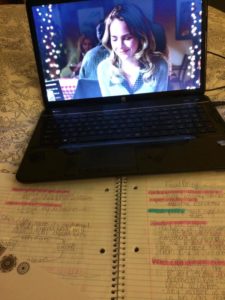
Unlike his experience trying to release Red Meat, Burnett was able to temper his disappointment in Ask Me Anything’s reception with the morsels of appreciation he was discovering online for it. Teenage girls were contacting him about the film on Twitter and Facebook, demanding to know more about Katie and her “real” life.
Burnett knew Katie struck a chord with the audiences she reached. He just didn’t quite know how she could reach more of them. He figured writing another book with her as a character, at the very least, couldn’t hurt.
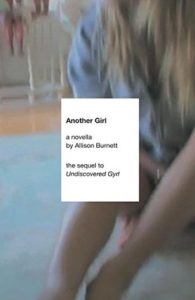
Another Girl (2015)
If Allison Burnett had been able to exorcise the voice of Katie Kampenfelt from his mind by writing Undiscovered Gyrl and by producing Ask Me Anything, it was now taken over by hundreds of new teenage girls that wanted to be just like her. Like the book, the film brought about talk on the internet that it was based on a true story and that Katie Kampenfelt was, in fact, a real person. Burnett explains:
“The letters I received and still receive from readers are filled with this passionate love of Katie and desperate need to know where she is– many people misunderstood the movie and think the whole thing is a true story. It reminds me of Nathanael West’s Miss Lonelyhearts— all these people yearning for something outside themselves. They are desperate for answers about a mere work of fiction. I mean can you imagine an earlier generation writing to, say, Salinger, and begging to know how Holden turned out? So I guess I wanted to enter that world.”
Burnett sat down and started writing Another Girl late in the winter of 2015. He finished it rapidly in only three months. Instead of being a one-person blog, the new book is an ongoing online conversation between a clinically depressed young woman named Elle Overton and the mysteriously intangible Katie Kampenfelt.
Elle has just finished reading Undiscovered Gyrl and its ending has caused her “anxiety to go out of control.” Elle reaches out to Katie’s web page, which she assumes was created by the book’s mysterious “author”. She’s not certain, however, as she explains:
“I don’t actually think you’re a real person. You’re just the author who wrote the novel and set up the page to involve young readers. But for some reason writing to you has made me feel better. Maybe because if you were Katie, I know we would be friends. We have so much in common.”
“Katie Kampenfelt“ promptly replies, but Elle is justifiably skeptical as to whether or not this could possibly be the “real” Katie. This doesn’t stop Elle from corresponding with Katie, and the two slowly bond over their traumatic pasts and their years of being used by men.

The mind meddling with both Elle and Another Girl’s readers thus begins, and it doesn’t let up once from there. The meta-awareness found in Another Girl is almost a trademark for Burnett at this point in his career, but this is the first time he’s explored it to the point that it’s actually essential to his story. Elle is chasing a work of fiction that could be a real person within a work of fiction– and it’s all within a work of fiction.
Or is it?
Another Girl and Burnett have a lot of fun with these ideas, they play with us as we read it and continue to mess with our heads long after the book is over. It’s a haunting, lean, and mean story that is as tragically unsettling as it is wickedly entrancing.
Unfortunately, Vintage, the publisher of Undiscovered Gyrl, did not believe that Gyrl was enough of a success to warrant the publishing of a sequel. Rather than submitting the book to other publishers and waiting around as he had previously done with Malcolm Poe and his B.K. Troop sequels, Burnett decided to publish it himself. Not only would it reach his readers almost immediately, but with Ask Me Anything driving sales, it made good business sense. The decision proved to be a wise one, as Another Girl’s publication in August of 2015 has already been more financially rewarding than his two Writer’s Tribe books combined.
Burnett currently hopes that his own screen adaptation of Another Girl will be his third directorial effort. Two independent producers, Brad Wyman and Bruce Hensel, are on board and currently casting the lead role.
Time will tell if the resonance of Katie Kampenfelt ‘s voice increases in the years to come.
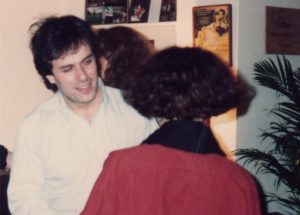
“Time is a MotherFucker”: Today, The Future, and Beyond…
Allison Burnett is today in the similar state of uncertainty that he was upon his arrival in Los Angeles over twenty-five years ago. Needless to say, however, he’s generally a more accomplished, secure, and happy man, now.
In late 2017, Burnett and his wife, Chloe King, amicably separated (or “consciously uncoupled”, as Burnett wryly states). They continue to raise their two sons together in separate households just houses apart.
In 2018, Burnett lived out his own version of a movie love story when he rekindled a friendship from his Evanston days. Jessica Pappas’s older sister had been friends with Burnett’s sister, and had developed a middle-school girl crush on the recently college-graduated Burnett after an encounter shortly before he moved to New York. Knowing she and her sister lived in Los Angeles, Burnett contacted Jessica, also a writer, on Facebook, they instantly clicked after re-meeting in 2018, and the two have been “inseparable ever since.”

Burnett is seemingly at peace with the fact that he can’t currently predict his future in Hollywood. He isn’t alone, as the entire business of Hollywood is in a constant state of fluctuation today. Those with once-secure careers are struggling to stay afoot on unsteady ground, and that footing seems to be shifting every day.
However, given the fact that he’s lead a very comfortable life by working in Hollywood for twenty-five years, Allison Burnett is humbly aware of the business he’s in. He works with the same passion and curiosity as he once did in his youth, evolving with the times instead of raising a fuss about the nature of the industry…
Well, at least not too much of a fuss.
Adaptability is the key to surviving a business as brutally fair-weathered as Hollywood. Burnett, both personally and professionally, manages to stay fresh by keeping himself open to a wide variety of people and opportunities (of any size) that come his way.
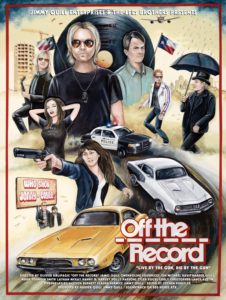
One of his most current credits, an indie called Off the Record, came about by chance when Burnett met writer/actor/musician James Quill at the gym. After hitting it off and liking an idea Quill had for a screenplay, Burnett offered to rewrite and help him develop his script for free.
In 2017, Burnett enlisted the talents of a young writer he met on Twitter (Jessica Ellis) to co-write a romantic comedy spec script entitled The Wedding War. The script is currently being shopped with some interest.
Burnett is also trying his luck with the Middle Grade fiction crowd. Going all the way back to the early days of his career, Burnett returned to his celebrated and unmade Max screenplay (later rewritten by Burnett as Home) and adapted it into a novel titled The Ghosts of Normal. Completed in March of 2018, he recently landed a literary agent for it. Burnett considers the book to be a gift to his two young sons, Winslow (now the name of the book’s main character) and Keats.

In April of 2018, William Morrow Paperbacks published My Oxford Year. Although the book is entirely credited to a young English writer by the name of Julia Whelan, it is actually based on an original screenplay of Burnett’s. The intention of Temple Hill Entertainment’s Marty Bowen is to drum up interest for the film to be produced. For marketing reasons, Burnett’s name is mentioned only on the copyright page in small print. The book is currently receiving great reviews (Entertainment Weekly gave it an “A” rating and called it a “tender, moving tale of self-discovery and first love”), with not a mention of Burnett’s name.
Burnett’s screenplays have also survived the test of time. Whether freshly written or completed years ago, his work still raises the interest of production companies today. Burnett’s page on IMDB constantly reports different screenplays of his rotating in and out of pre-production. One of these, entitled American Night, appears like it might actually make it to production within the next year.
Burnett is currently optimistic about his future in the industry, though not without a heavy degree of caution. In spite of this, he’s more than willing to find out for himself what may come:
“Screenwriting is dying right now. Television is king as never before. With 400+ TV shows and film production at a record minimum, the writing is on the wall. There are those who believe the skills set for each is the same, but I do not believe this to be true. Screenwriters are trained in concision. Like a poet, compression lies at the core of everything we do. Quite the opposite in TV, where everything takes place as it were in slow motion over long periods of time. Screenwriting can create high stakes, build momentum and multiple character arcs. These happen in slow motion in TV episodic writing. Are there writers who have both skill sets? Absolutely, yes, of course. Am I one of them? We’ll see. For right now, I am going to continue to fight the good fight to write for movies. I will always write fiction. And maybe even go back to theatre and write plays.”
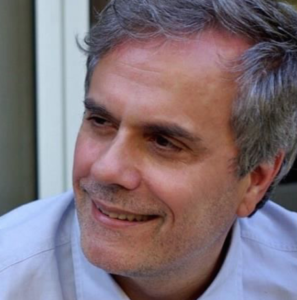
However his story ends, Allison Burnett has already found professional fulfillment through his screenwriting career, and creative fulfillment through his directorial efforts and novels. Each side has afforded the other, and neither is taken for granted by Burnett. To this day, he remains fully aware of how lucky he is to have succeeded at all in Hollywood– in spite of how incredibly unlucky he’s sometimes been within that fortune.
Your mother may not know his name, but Allison Burnett’s most personal and self-realized works are as identifiable, connected, and singular as the larger and louder careers of such obvious auteurs as Scorsese, Kubrick, or Tarantino. His day in the public limelight has yet to come, but his truest works are quietly available out there, predominantly unknown, waiting, and ready to be undiscovered…
Any day now.
Other People’s Movies would like to thank Allison Burnett for the generosity of his time, participation, input, and patience with this piece.
